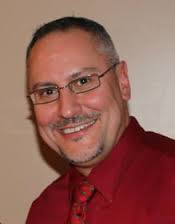When most people hear the words “radiologic technologist” or “rad tech,” one common misconception is that technologists are simply “button pushers.” However, radiologic technologists do far more than make exposures on patients. They are imaging professionals who play an integral role in surgery, assist radiologists in special procedures, operate mobile radiography units, and assist in cardiac catheterization procedures.
The following are skills that are important for radiologic technologists to have in order to succeed in the field.
Versatility
The field of radiologic technology is anything but limited. Professionals in the field can go on to further their education and become specialized in areas like sonography, mammography, bone densitometry, magnetic resonance imaging, nuclear medicine, and cardiac and vascular intervention.
Success in the field depends on professionals who are open-minded in their outlook, well-rounded in their skill set, and versatile with regard to effectively handling a wide range of responsibilities and duties. On any given day a radiologic technologist may be assisting in a surgical procedure, such as a hip replacement, be aiding a radiologist in performing a procedure on the heart, or may be performing trauma radiology in the Emergency Room.
Attention to Detail
Paying close attention to every last detail is a critical skill for radiologic technologists. Physicians who are using the images radiologic technologists produce to make a diagnosis need the best possible imagery to do their job effectively.
Whether it’s mastering the latest imaging technology, reading and interpreting instructions from physicians and nurses, guiding patients into the best positions in order to render the highest-quality images, or ensuring the safety of patients during x-rays and other imaging procedures, close attention to detail is essential.
People Skills
Many times when patients encounter radiologic technologists they’re scared and it can be an uncomfortable setting. So just as important as technical acumen and attention to detail is the radiologic technologist’s ability to connect with their patients on a human level. A radiologic technologist must be truly committed to professionalism, patient care, safety, and care for their patients with empathy and compassion.
To do this successfully takes a high level of confidence in your skills and abilities and effective communication so you can put the patient at ease when it comes to informing them of the procedure and positioning them. It’s also important to have solid teamwork skills when it comes to working closely with other members of the healthcare team.
Adaptability
Technology is constantly advancing and evolving. This is just as true for radiologic technologists as it is in any other profession, so it’s crucial that they are able to adapt to new innovations and professional resources as they emerge.
According to a recent report on emerging radiology trends by Carestream, health-imaging professionals like radiologic technologists could encounter everything from artificial intelligence, to 3-D anatomical modeling, to collaboration through mobile devices and wearable technology. Adaptability is essential to make the most of these advances.
Picture This—Your Career as a Radiologic Technologist
If this sounds like you, you should check out Northwestern College’s Radiologic Technology program. Our program is accredited*, we’ve been meeting the educational needs of Chicago-area students since 1902, and we’re respected by employers. With abundant hands-on training, the latest technology, and convenient scheduling options at our Bridgeview location as well as online, Northwestern College could be an ideal path to your professional future.
*Northwestern College is accredited by the Higher Learning Commission, 230 S. LaSalle St., Suite 7-500, Chicago, IL 60604, www.hlcommission.org. Review our consumer information at www.nc.edu/ci.
The Radiography Program is accredited by the Joint Review Committee on Education in Radiologic Technology (JRCERT), 20 North Wacker Drive, Suite 2850, Chicago, Illinois 60606-3182, 312-704-5300, www.jrcert.org.
The post A Career in Radiologic Technology appeared first on Northwestern College.
from
https://www.nc.edu/career-radiologic-technology/


 Technology program
Technology program